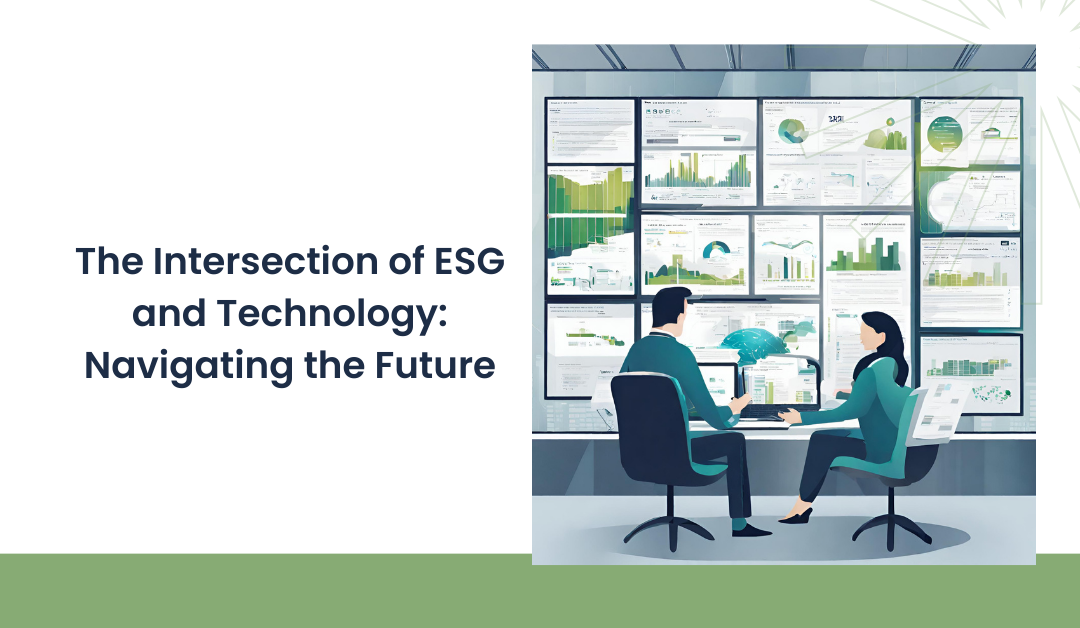In the rapidly evolving landscape of Environmental, Social, and Governance (ESG) considerations, the role of technology, especially Artificial Intelligence (AI), stands as a linchpin in the journey towards effective ESG data management and reporting. As enterprises increasingly recognize the importance of sustainable practices, the adoption of advanced technologies becomes not just beneficial but imperative for staying competitive and credible in the evolving marketplace.
Escalating Data Complexity
ESG data, stemming from diverse sources and in voluminous quantities, presents a significant challenge for enterprises. Technology, particularly AI-powered solutions like ours at ESGTech.ai, emerges as the crucial factor in navigating this complexity. AI’s ability to swiftly process, analyze, and derive actionable insights from large datasets is indispensable for managing the intricacies of ESG-related information.
Enhanced Accuracy and Transparency
The reliability of ESG reporting hinges on the accuracy and transparency of data. AI-driven technologies ensure data accuracy by identifying inconsistencies, errors, and anomalies, thereby bolstering the credibility of reported information. This instills trust among stakeholders and facilitates compliance with stringent ESG standards and regulatory requirements.
Real-time Insights for Informed Decision-making
The future of ESG management demands real-time insights into evolving trends and risks. AI’s predictive analytics capabilities provide enterprises with foresight, enabling proactive decision-making to enhance ESG performance. By analyzing historical patterns and current data, AI predicts future scenarios, guiding businesses to adopt preventive measures and capitalize on opportunities.
Customization for Varied ESG Needs
Enterprises across industries face unique ESG challenges. AI technology offers customizable solutions tailored to specific industry requirements. Whether it’s carbon footprint tracking, social impact assessment, or governance evaluations, AI-driven platforms adapt to diverse needs, ensuring comprehensive ESG management.
Addressing Evolving Stakeholder Expectations
Stakeholders, including investors, consumers, employees, and communities, increasingly scrutinize companies’ ESG practices. Technology-driven ESG frameworks not only meet current expectations but also anticipate future demands. AI-powered systems enable enterprises to align with stakeholder values, fostering trust and demonstrating a genuine commitment to sustainability.
Resilience through Risk Mitigation
ESG-related risks pose threats to business continuity. Leveraging AI’s continuous monitoring and analysis capabilities, enterprises can identify and mitigate risks effectively. This proactive approach enhances an enterprise’s resilience against regulatory changes, supply chain disruptions, and reputational challenges.
Driving Sustainable Growth
ESG isn’t just a trend; it’s a fundamental shift towards sustainable business models. Technology adoption, particularly AI, isn’t merely a tool; it’s an enabler for sustainable growth. By integrating AI-powered ESG strategies, enterprises lay the foundation for long-term value creation, operational efficiency, cost savings, and competitive advantage.
Conclusion
The future of ESG data management and reporting is intrinsically linked with technology adoption, particularly the integration of AI-driven solutions. Embracing technology like AI, exemplified by platforms such as ESGTech.ai, isn’t a choice but a strategic imperative for enterprises committed to navigating the complexities of ESG, driving meaningful change, and fostering sustainable growth in the years ahead.

